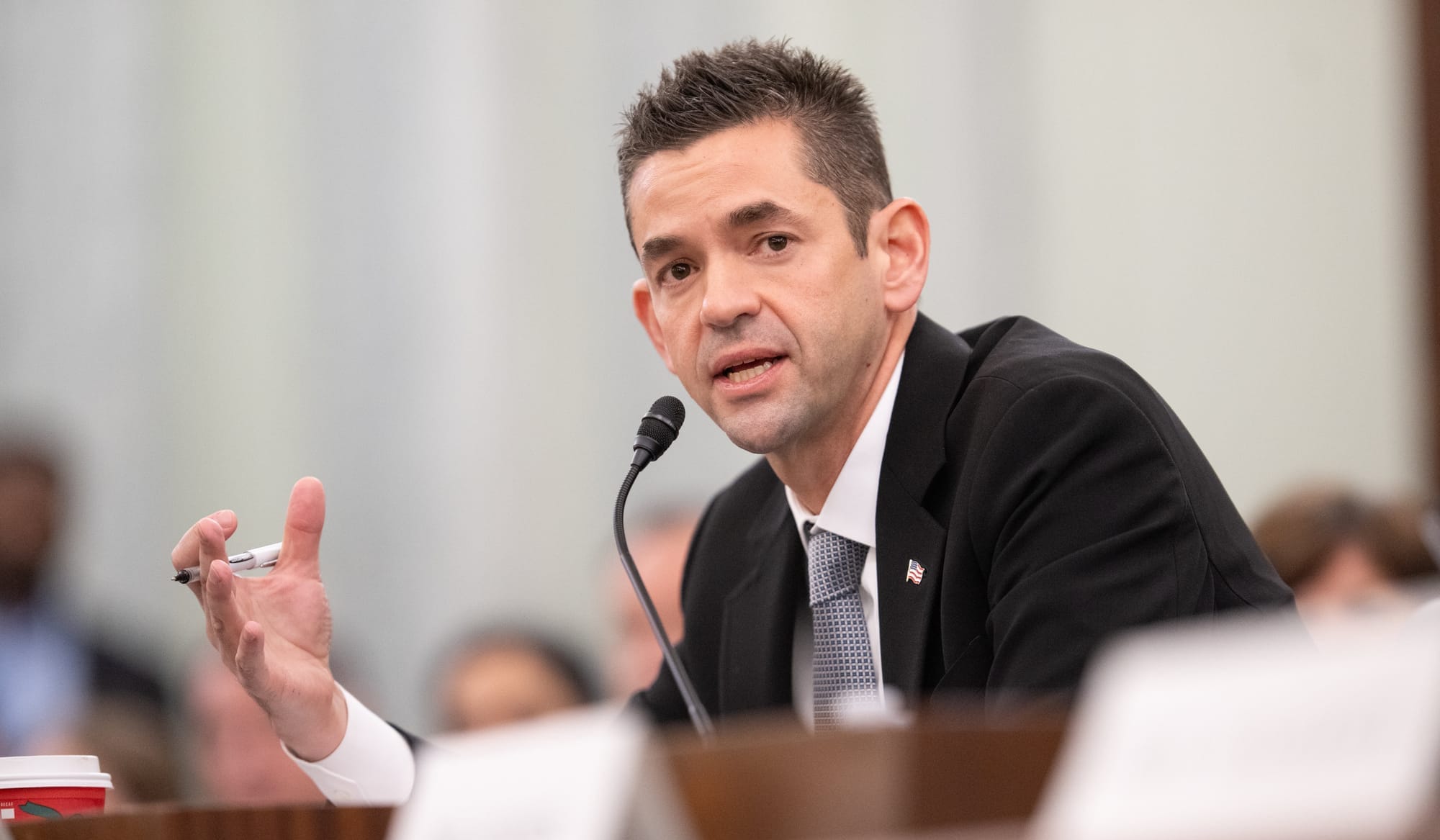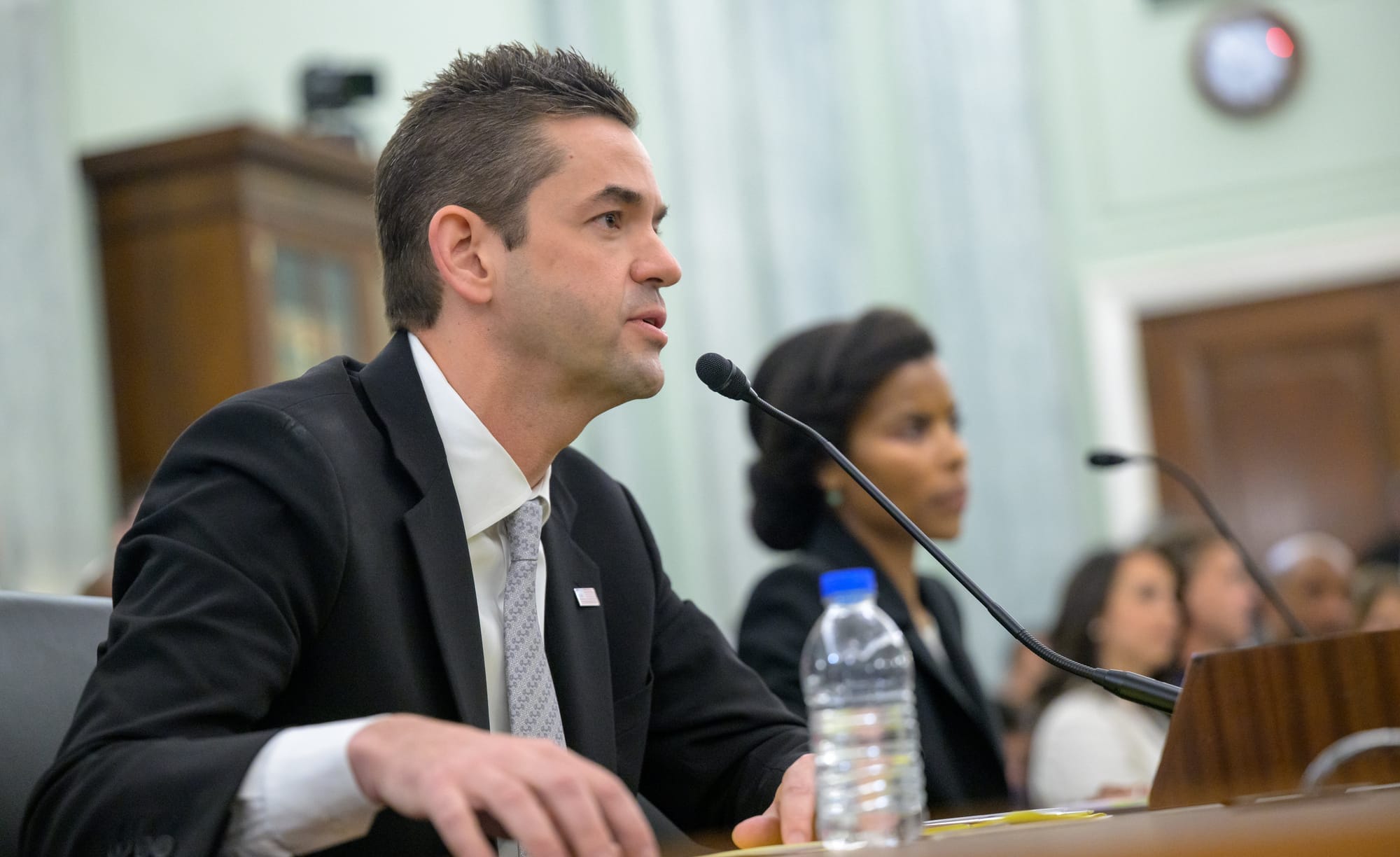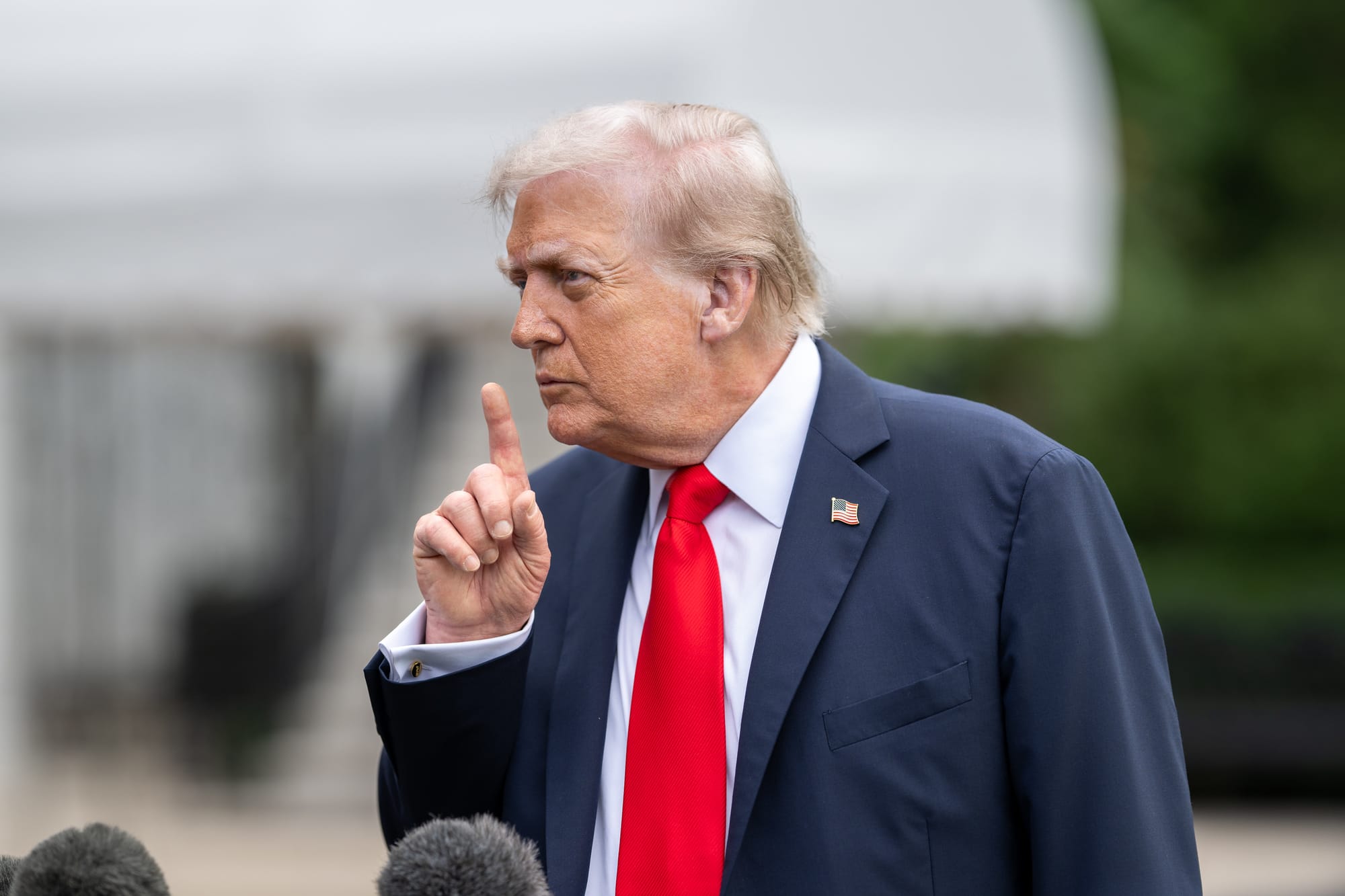Table of Contents
Acting NASA Administrator Sean Duffy is convinced the U.S. will win the 21st-century "Moon race", despite massive defunding and being the only participant.
In a recent internal NASA town hall, Acting Administrator Duffy told agency employees that he and the Trump Administration are committed to beating China to the Moon (a point he constantly tells Fox News), with Duffy declaring:
"I’ll be damned if that is the story that we write. We are going to beat the Chinese to the moon. We are going to make sure that we do this safely. We’re going to do it fast. We’re going to do it right."
We will get to the Moon under President Trump’s term. Our mission is Artemis.
— NASA Acting Administrator Sean Duffy (@SecDuffyNASA) September 5, 2025
We WILL win the second space race. China wants to beat us there, but we won’t let them.
Come aboard, to the final frontier. pic.twitter.com/3CZ0XzTEce
A promotional video released by the Trump Administration declaring they will win the "Moon race", via Sean Duffy on Twitter.
Newly appointed NASA Associate Administrator Amit Kshatriya vowed to push back on statements saying that the U.S. could or will be second to land this century, signaling a level of ideological agreement at the top levels of the agency seven months into the new American administration.
Duffy's comments were provoked by a recent testimony by former NASA Administrator Jim Bridenstein, although not mentioned by name, from Trump's first term. Bridenstein has been critical of the choice of SpaceX with Starship (which only recently started succeeding again after writing off a potential year of progress) for the Artemis program's first lunar lander, and its selection being approved while no administrator was confirmed. In his view, needing to launch a depot Starship, followed by an unclear number of refueling Starships before a crew-rated lunar lander Starship even launches, allows China to land on the Moon before America.
America landing before China will also be critical for Trump-Duffy plans to violate the outer space treaty to claim parts of the Moon for America's sole use via nuclear reactors.
During the same town hall, Duffy defended Trump's NASA cuts for fiscal year 2026, slashing 6 billion United States Dollars in funding and ending over forty science missions and canceling America's only Moon rocket and the Orion capsule after the Artemis III mission (the first Moon landing). In a pushback against Artemis mission cuts, other U.S. lawmakers added funding for the Artemis IV and Artemis V missions through the 'One Big, Beautiful Bill', along with fully funding the sometimes crewed Gateway lunar orbiting space station.
Restoring funding is all well and good, but NASA leadership intends to ignore that funding, again, with Duffy saying:
"The president, though we have a reduced budget, he gave us more money for space exploration. That’s what we’re going to do. At this point, I think we have enough money to accomplish our mission."
Those cuts have led to thousands of employees leaving the agency, alongside the White House clamping down on unions at NASA.
With less funding and fewer employees, it will become increasingly impossible to "beat" China to landing people on the Moon in a race the Chinese lunar program isn't even participating in.
China's not racing
Despite recent strides in hardware testing for China's crewed Moon missions, the nation does not view its lunar program as in a race with America's Artemis due to political factors. China treats its lunar program as part of long-term national development plans with a centralized system that allows for stable, multi-year planning through multiple government organisations and advisory bodies that set consistent objectives. This contrasts sharply with America, where NASA faces shifting political priorities every four to eight years, meaning the lunar program and others must win support from changing administrations and Congress, making long-term planning difficult. Chief Designer of China's Lunar Exploration Program, Wu Weiren, observed this and noted:
“When the president changes, his policies change,” — “We in China may anchor our goals and always draw a blueprint until the end, so we have always moved forward smoothly and firmly, which is the difference between our two countries.”
The only advantage America boasts over China is its fifty-six nation non-binding Artemis Accords, which aims to rewrite the space law through its lackluster points. China's international lunar agreement is instead for cooperative construction and research on the International Lunar Research Station.






